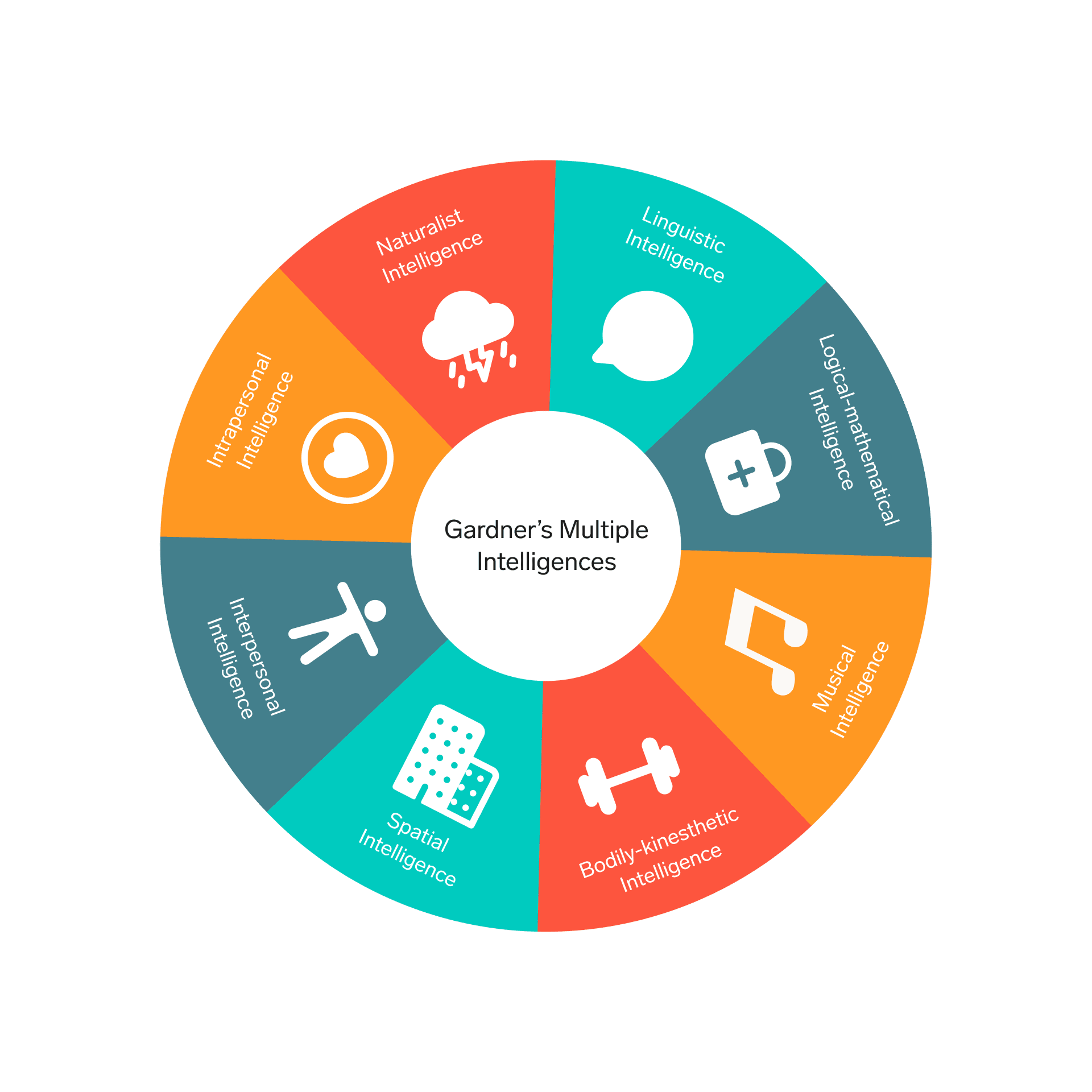Millennials – Understanding the Way They Work
Millennials make up the majority of the workforce today. How can you attract and retain the best millennial talents? And is it time to rethink some of the stereotypes?
- 20 Jun 2024
- Max 9 min read
The Number One HR Solution on Salesforce
Your company culture is a living, breathing thing.
It encompasses all the elements that make up your company: the people and their personalities, team rituals, communication channels, management processes, operations, policies, employee experience, and other manifestations of 'how things are done' at work.
Invariably, interactions must take place in the workplace to get the job done and move together toward the company's goals – online or offline. When interactions between employees are generally positive, a positive atmosphere is created at work. On the other hand, when these interactions are usually negative, it can cause frustration, anxiety, disengagement, and burnout.
Similarly, how each employee feels about themselves and processes their experiences has a major effect on those around them. Employees with negative feelings often suffer from unresolved issues or challenges in their personal life, which can be dealt with through introspection, critical reflection, and conflict resolution.
What we're talking about here are essentially two types of intelligences: interpersonal and intrapersonal. Before deep diving into each of these, let's first get an overview of the idea of multiple intelligences.
Interpersonal and intrapersonal skills are important concepts in educational theorist Howard Gardner's theory of multiple intelligences.

Gardner has spent his life studying people and how they learn. He initially devised a framework of seven different intelligences that humans can possess or display. This framework is more dynamic and inclusive than the traditional IQ tests, which provide a one-factor intelligence score applied to all people despite their differences.
We know that some people are more inclined to be brilliant musicians, others incredible mathematicians, and others excel at public speaking. Of course, we also all know people who possess all these talents (and more!).
In this way, Gardner's theory of multiple intelligences helps to point out the various ways that people can excel, whether by brains, brawn, or a combination of the two.
The existence of multiple intelligences means that mathematicians and physicists are not the only smart people in the world. Think of all the brilliant athletes, writers, nature conservationists, teachers, dancers, artists, and fashion designers that create masterpieces and inspire others.
Here's the list of the eight intelligences in Gardner's framework:
In the traditional sense of the word, intelligence or IQ is something you're born with that can't be changed. However, recent educational theories have shown that we keep learning new skills and strategies as we grow older.
With this broad overview of the different intelligences people can display, it's clear that anyone can be predisposed to a handful of these (or even all of them) and can hone their skills.
Now, we'll focus on points 6 and 7 above: Interpersonal and intrapersonal intelligences.
We've already briefly touched on interpersonal interactions, and we're sure most people already have a firm grasp of what this means. But it's always good to take a deeper look to understand familiar concepts better.
Interpersonal communication is not only about conversing with one or more people. And it's also more than simply transferring information face to face. It involves verbal and non-verbal cues (body language), literal and figurative speech, and written communication. Nonverbal communication also includes facial expressions and gestures.
In larger group settings, a person can also "read the room" to perceive the sentiment and expectations of others. Interpersonal communication is filled with nuances!
Interpersonal communication skills help people express their desires or emotions clearly and understand what others want and feel. Moreover, having a high interpersonal intelligence means that you're more able to assist others in achieving their goals or changing their behavior to get the desired outcome.
Interpersonal skills are:
According to a 2017 study, interpersonal strategies are more effective in producing behavior changes in a person's physical activity. Participants in this study received interpersonal and intrapersonal strategies to motivate them to exercise. It was found that the social support and friendly competition of interpersonal group interaction increased their physical activity per week.
The findings of this study are that interpersonal interaction helps people change their behaviors more so than intrapersonal skills.
Considering that interpersonal skills have so much to do with how people perceive others' needs and emotions, it's a core soft skill to learn when you work in any kind of service industry. This includes customer service, sales, health care, human resource management, etc.
HR professionals need excellent interpersonal skills to handle employee requests and anticipate possible needs or issues.
For instance, HR must assist with conflict resolution at work. Employee interpersonal conflict is normal, even if you have a fantastic company culture. During interpersonal conflict intervention meetings, the HR person needs to facilitate healthy listening and responding and help both parties come to an agreement or apology.
However, if conflicts between employees happen often at your organization, you should start asking whether it might be necessary to upskill your employees and the HR team in their interpersonal skills.
The primary outcome of interpersonal communication is usually to achieve some kind of aim: to explain something, to get a job done, to ask for help or information, to encourage someone, or to share thoughts, fears, and emotions with others.
In a workplace where interpersonal communication skills are not valued and honed, you'll find communication bottlenecks, confusion, and a sense of disunity. These factors lead to unproductivity and disengagement at work because employees will struggle to feel a sense of belonging to the company culture or feel stunted in their career growth.
Gallup's well-known Q12 survey measures employee engagement at work and more than half of the questions point to healthy interpersonal relationships. These questions relate to:
It's clear that positive, uplifting, and inclusive interpersonal behavior at work is the key to a healthy and productive company culture where people feel valued. This, in turn, leads to high employee engagement because employees understand what's expected, feel good about their work, and have good relationships with their colleagues.

To learn more about how a great company culture improves the employee experience, download this guide.
Next, we'll look at intrapersonal skills and how this affects interpersonal relationships and the company culture.
As we discussed earlier, Gardner defines intrapersonal intelligence as understanding and appreciating your thoughts, feelings, and desires. Intrapersonal communication is, in a sense, the opposite of interpersonal communication because it's all about your inner world, self-concept, and self-reflection.
A key difference is that intrapersonal communication goes deep and wide: how you see yourself and reason within profoundly impacts how you perceive others and what you think they see in you. In other words, intrapersonal communication directly correlates with interpersonal skills.
Intrapersonal skills are:
Experiencing intrapersonal conflict means that you're faced with a difficult decision that needs to be made. This may elicit an analytical process to solve the problem or strong opposing emotions in you.
The thought process or cognitive conflict relates to the problem to be solved, and sometimes there's more than one option that could be "correct." Thus, you're faced with multiple choices or strategies for solving the problem and must choose the most appropriate one.
Another form of cognitive conflict is when you experience opposing values, morals, or behaviors within yourself that cause internal conflict. For instance, you may value integrity very highly but would be required to hide some information from clients to protect professional relationships.
The emotional conflict that may be experienced is when you have opposite emotions about a situation, for example, feeling delighted that you've been offered a promotion but at the same time being afraid of the responsibility and doubting your abilities.
Usually, people with strong intrapersonal skills know their strengths and areas of improvement and are confident in what they can achieve and how to improve. A person with underdeveloped intrapersonal skills could be considered to have low emotional maturity, struggle to cope with their failures, or feel insecure about their areas of improvement.
Good intrapersonal communication and positive self-talk can solve intrapersonal conflicts faster and build the confidence to set goals and perseverance to reach them.
Intrapersonal skills are valuable at work, even though traditional workplaces often don't give them the attention they deserve. Besides improving individual employees' holistic well-being, intrapersonal skills help resolve interpersonal conflicts. Moreover, high intrapersonal skills help employees regulate their emotions, stick to goals, and show more empathy toward others.
When interpersonal conflicts at work arise, employees with strong intrapersonal skills will better control how they react to negative situations because they're equipped to deal with conflicting emotions and can reason the situation out in their minds first before responding.
Because good intrapersonal communicators can be more compassionate, they can also assist others in negotiating their negative feelings and behaviors. People are generally more attracted to people with a positive attitude, and employees with good intrapersonal skills will create a chain reaction of positive emotions and behaviors in their teammates.
One of the most profound effects of good intrapersonal skills on your company culture is being able to internalize and stick to goals. Intrapersonal communication involves introspection and self-awareness, and employees with these skills are more ready to internalize the company values and objectives.
So, if we want to discover how company culture can be improved by the interpersonal and intrapersonal skills of employees, a fundamental question crops up: Can we learn interpersonal and intrapersonal skills?
The answer is: yes. As much as we can stimulate any other intelligences to become more adept, we can grow in our interpersonal and intrapersonal communication skills to become better team players. And it's not difficult to believe this is true: just think of all the self-help books, mindfulness apps, and myriad other talks and resources to help people better understand themselves and others.
So, let's look at strategies to increase these skills in your organization.
Remember your company vision, mission, and values? These are important elements that help link employees together under a common purpose. If you see poor interpersonal communication at your company, you should think about ways to get your team to buy into the company values.
Here are some ideas to stimulate and strengthen the core competencies needed for interpersonal skills through promoting your company values:
Role-play is a proven learning strategy that requires interpersonal communication and imagination and is generally a fun way for teams to bond. Of course, certain personality types will struggle to 'put themselves out there' and perform a short theatrical piece, so consider that.
This is also where role-play can work well because you can make it as big or small as you want, with the option of forming role-play pairs that interact with each other one-on-one. You can try exercises like one person being the customer and the other being the customer service representative dealing with a difficult situation.
Problem-based learning (PBL) is a learner-centered approach to education where groups are formed to answer open-ended questions and learn about a topic.
Not only can this approach help your employees learn more about your company and help solve the unique problems your customers face, but it'll also improve their intra- and interpersonal skills through:

Another great way to get your employees to work on interpersonal communication and internal reflection is to run community-based social initiatives. Find out what initiatives your employees are passionate about and organize groups to give back to the community.
This will positively affect your community and your company as employees interact with each other around a common purpose and live out your company values in the real world.
Having a collective vision is a significant first step toward successful interpersonal communication. But often, employees are not part of the company values selection process, especially if they join the company later on. So, it's a good idea to re-evaluate your values every now and again to ensure they're still relevant.
Why? Because for employees to buy into the company culture, the values and policies must make sense and be relatable to them. It's also the perfect opportunity for employees to work together as a team. You can create a workshop to analyze the current company values, facilitate an exchange of ideas, and set new values based on specific criteria and employees' input.
This activity will help employees develop a deep understanding and appreciation of the company culture through teamwork and healthy debate.
Interpersonal and intrapersonal skills are essential for highly engaged employees and project teams. Although interpersonal and intrapersonal skills are considered two different types of intelligence, we've shown how these skills can be learned and improved.
We've also discussed how good interpersonal communication is interlinked with high intrapersonal communication skills and how these can affect your company culture.
In this sense, it's crucial to upskill your employees' soft skills to keep them highly engaged at work and to maintain a positive company culture. Employees need to be able to self-regulate emotions, express their feelings and needs, and resolve inner conflicts as much as they must communicate with others, act with empathy, and shape others' positive behaviors.
We've briefly outlined a few ideas for upskilling the EQ of your team. Still, you can employ many more activities and exercises to build interpersonal relationships and improve employees' intrapersonal skills.
Join flair’s newsletter to receive the latest tips & trends in the HR world.

